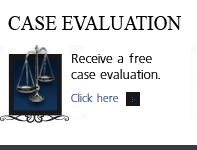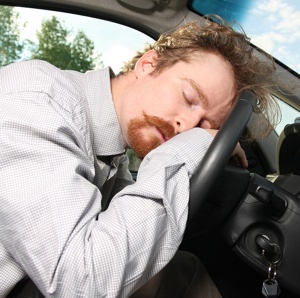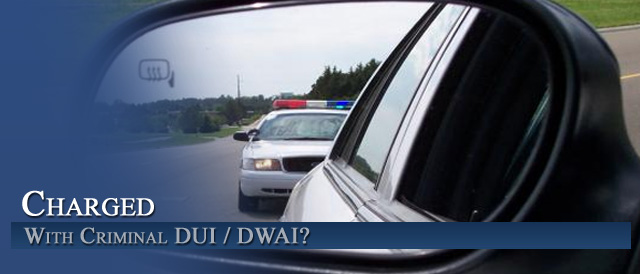
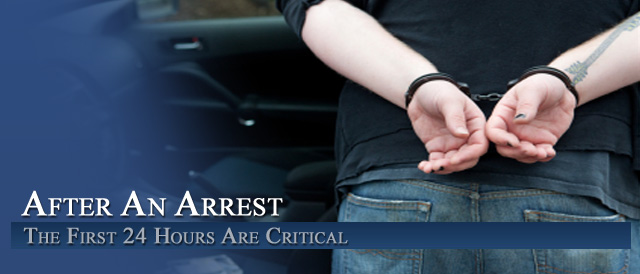

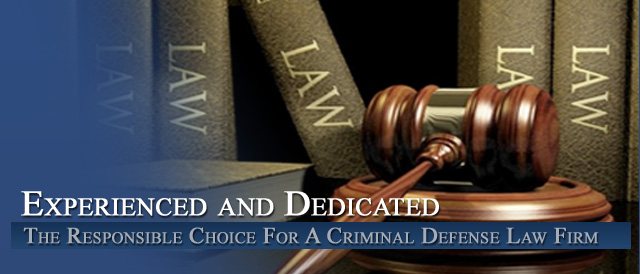

Is Taking Ambien A Defense To A Charge Of DUI – DUID In Colorado?
By Colorado DUI – DWAI – DUID – Criminal Defense Lawyer – H. Michael Steinberg
Is Taking Ambien A Defense To A Charge Of DUI – DUID in Colorado? – This is a complex question turning on many components. At a minimum – it is an explanation or “mitigator” that may help explain why so many individuals drive after taking Ambien and later have no memory of the act – or even the “decision” to drive.
Sleep Driving Defined By The FDA
“Sleep driving” driving while not fully awake after the ingestion of a sedative-hypnotic product – and later having no memory of the event of driving. Ambien as well as sleeping medications such as Lunesta, Sonata and Rozerem produce “sedative-hypnotic” side effects that cause this condition.
I have handled many cases as a Criminal Defense Lawyer In Colorado where DUI is charged after my client’s have taken Ambien. The pattern is always the same. They take the medication – fall asleep – and at some point – without the knowledge or input of others – actually start sleep-walking… and then “sleep driving.”
Is This A Legitimate Defense?
The state of Colorado does not recognize the “Ambien Defense.” While “sleep driving” would seem to be an “involuntary act” – judges will not specficially instruct on the defense. Taking Ambien is considered a voluntary act – the known side effects include sleep driving and like other medications – driving is prohibited while under the influence of the drug.
The truth is – few read – or listen to the warnings that come with the prescription drug.
If you use Ambien or other “sedative-hypnotic” medication and then you drive – you may be prosecuted for DUID – Driving Under The Influence Of Drugs – in Colorado
I Thought A Crime Required A Voluntary Act? Isn’t DUID “Ambien Driving” An “Involuntary” Act
The Warning by the manufacturers of “sleep driving“ drugs such as Ambien is found on the clear label on the bottle, and also in a product medication guide that accompanies the prescription.
The argument in a court of law is this – I took the Ambien properly – I went to bed – at some point I awoke and drove my car – I was unaware I was driving – and if aware – I would not have driven.
A crime requires the combination of a voluntary act (the acteus reus) and the proper mental state (the mens rea). The proposed Ambien defense negates both – in this state of mind – you are neither aware of your actions or acting in a voluntary way.
If a jury accepts the hypothesis – they must acquit because without a voluntary act, there can be no criminal culpability.
Is Taking Ambien A Defense To A Charge Of DUI – DUID In Colorado? – “The Rub” – Combining Ambien With Other Intoxicants
As noted above – the law holds us responsible for the improper use of a prescription drug. Many charged with DUI in Colorado – use Ambien with alcohol or other prescription dugs and ignore the warnings on the packaging. This makes the defense more difficult for a jury as it impacts the “clean” use of the defense. Among the improper uses of the drug is exceeding the recommended dosage.
Understanding The Ambien Side Effect Of Sleep Driving
The Ambien defense will require the use of an expert retained to explain to the jury the “half asleep and half awake” consequence of taking the drug.
While not impacting ALL people – this state of mind will cause certain people to do things that they would not do if they were fully awake.
Side Effects include:
Sleepwalking
Attempting to drive while asleep
Sleep eating
Memory loss.
The So Called “Zombie: Effect Of Ambien “Sleep Driving”
The research has clearly demonstrated that drivers who had Ambien in their blood following after blood tests have exhibited some of the most erratic driving behavior.
How do you explain to a jury why an otherwise excellent driver drives the wrong way on a one way – crashing their vehicle into seemingly easily avoidable parked car? Why do individuals under these circumstances have memory loss and amnesia? Why is the drug so prevalent in the United States and yet there is so public knowledge of these well known side effects?
Those arrested and prosecuted for the Colorado DUID crime of driving under the influence of Ambien – tell me of waking up in jail with no idea how they got there. The investigating police officers tell me of individuals found driving in their pajamas or other sleep wear and who appear to these officers as dazed – confused – unruly.
The Ambien sleep driver appears intoxicated – just as we all do when we are awoken in the middle of REM sleep. They may respond to some basic questions – but are vague and unnatural in their responses.
Here is what the FDA currently (2013) says about sedative-hypnotic drugs such as Ambien:
Sleep Disorder (Sedative-Hypnotic) Drug Information
The U.S. Food and Drug Administration (FDA) has requested that all manufacturers of sedative-hypnotic drug products, a class of drugs used to induce and/or maintain sleep, strengthen their product labeling to include stronger language concerning potential risks. These risks include severe allergic reactions and complex sleep-related behaviors, which may include sleep-driving.
Sleep driving is defined as driving while not fully awake after ingestion of a sedative-hypnotic product, with no memory of the event.
Drugs:
Ambien, Ambien CR (zolpidem tartrate)
Butisol sodium
Carbrital (pentobarbital and carbromal)
Dalmane (flurazepam hydrochloride)
Doral (quazepam)
Edluar
Halcion (triazolam)
Intermezzo (zolpidem)
Lunesta (eszopiclone)
Placidyl (ethchlorvynol)
Prosom (estazolam)
Restoril (temazepam)
Rozerem (ramelteon)
Seconal (secobarbital sodium)
Sonata (zaleplon)
Zolpimist
Here Are The Warnings Posted Inside The Product You Purchase At The Pharmacy
14.3 Studies pertinent to safety concerns for sedative/hypnotic drugs
……
Memory impairment: Controlled studies in adults utilizing objective measures of memory yielded no consistent evidence of next-day memory impairment following the administration of Ambien. However, in one study involving zolpidem doses of 10 and 20 mg, there was a significant decrease in next-morning recall of information presented to subjects during peak drug effect (90 minutes post-dose), i.e., these subjects experienced anterograde amnesia. There was also subjective evidence from adverse event data for anterograde amnesia occurring in association with the administration of Ambien, predominantly at doses above 10 mg.
17.2 Sleep-driving and other complex behaviors
There have been reports of people getting out of bed after taking a sedative-hypnotic and driving their cars while not fully awake, often with no memory of the event. If a patient experiences such an episode, it should be reported to his or her doctor immediately, since “sleep-driving” can be dangerous. This behavior is more likely to occur when Ambien is taken with alcohol or other central nervous system depressants [see Warnings and Precautions (5.3)].
Other complex behaviors (e.g., preparing and eating food, making phone calls, or having sex) have been reported in patients who are not fully awake after taking a sedative-hypnotic. As with “sleep-driving”, patients usually do not remember these events.
In addition, patients should be advised to report all concomitant medications to the prescriber. Patients should be instructed to report events such as “sleep-driving” and other complex behaviors immediately to the prescriber.
5.3 Abnormal thinking and behavioral changes
A variety of abnormal thinking and behavior changes have been reported to occur in association with the use of sedative/hypnotics. Some of these changes may be characterized by decreased inhibition (e.g., aggressiveness and extroversion that seemed out of character), similar to effects produced by alcohol and other CNS depressants. Visual and auditory hallucinations have been reported as well as behavioral changes such as bizarre behavior, agitation and depersonalization. In controlled trials, < 1% of adults with insomnia who received zolpidem reported hallucinations. In a clinical trial, 7.4% of pediatric patients with insomnia associated with attention-deficit/hyperactivity disorder (ADHD), who received zolpidem reported hallucinations [see Use in Specific Populations (8.4)].
Complex behaviors such as “sleep-driving” (i.e., driving while not fully awake after ingestion of a sedative-hypnotic, with amnesia for the event) have been reported with sedative-hypnotics, including zolpidem. These events can occur in sedative-hypnotic-naive as well as in sedative-hypnotic-experienced persons. Although behaviors such as “sleep-driving” may occur with Ambien alone at therapeutic doses, the use of alcohol and other CNS depressants with Ambien appears to increase the risk of such behaviors, as does the use of Ambien at doses exceeding the maximum recommended dose.
Due to the risk to the patient and the community, discontinuation of Ambien should be strongly considered for patients who report a “sleep-driving” episode. Other complex behaviors (e.g., preparing and eating food, making phone calls, or having sex) have been reported in patients who are not fully awake after taking a sedative-hypnotic. As with “sleep-driving”, patients usually do not remember these events. Amnesia, anxiety and other neuro-psychiatric symptoms may occur unpredictably.
In primarily depressed patients, worsening of depression, including suicidal thoughts and actions (including completed suicides), has been reported in association with the use of sedative/hypnotics.
It can rarely be determined with certainty whether a particular instance of the abnormal behaviors listed above is drug induced, spontaneous in origin, or a result of an underlying psychiatric or physical disorder. Nonetheless, the emergence of any new behavioral sign or symptom of concern requires careful and immediate evaluation.
“Unconsciousness / Sleepwalking”
An involuntary act – under Colorado criminal law – is generally a complete defense to a crime.
However as noted above – the actual act of taking Ambien is voluntary – it is the response to the drug – that may be argued to be involuntary. Therefore the law in this area is still evolving.
Here Is The Law On Involuntary intoxication in Colorado
INTOXICATION – INVOLUNTARY
It is an affirmative defense to the crime of_______________________ (insert name of crime)
that the defendant lacked the capacity to conform his conduct to the requirements of the law because of intoxication that was not self-induced.
This instruction can only be used when there has been evidence introduced that the intoxication was not self-induced. In all other situations concerning intoxication, the previous instruction is the only instruction applicable.
If sleepwalking occurs without fault, it may be a defense. The questions that must be asked are:
Q – 1 Was the Ambien taken by prescription?
Q-2 Was the Ambien mixed with alcohol, an illegal drug, or another drug prohibited by Ambien’s warning label?
Q-3 Did the accused have prior experience with Ambien sleepwalking – so that ignorance of the side effects (which would put him or her on notice of the risks of sleepwalking) can no longer be asserted?
Is Taking Ambien A Defense To A Charge Of DUI – DUID In Colorado?
Denver Colorado Criminal Defense Lawyer – H. Michael Steinberg
The Law Offices of H. Michael Steinberg, in Denver, Colorado, provide criminal defense clients with effective, efficient, intelligent and strong legal advocacy. We can educate you and help you navigate the stressful and complex legal process related to your criminal defense issue.
H. Michael Steinberg, is a Denver, Colorado criminal defense lawyer who will provide you with a free initial case consultation to evaluate your legal issues and to answer your questions with an honest assessment of your options.
Helping Clients To Make Informed Decisions In the Defense of Colorado Criminal Cases. Colorado Defense Lawyer H. Michael Steinberg provides solid criminal defenses for clients throughout the Front Range of Colorado – including the City and County courts of Adams County, Arapahoe County, City and County of Boulder, City and County of Broomfield, City and County of Denver, Douglas County, El Paso County – Colorado Springs, Gilpin County, Jefferson County, Larimer County, and Weld County,…. and all the other cities and counties of Colorado along the I-25 Corridor… on cases involving the question – Is Taking Ambien A Defense To A Charge Of DUI – DUID In Colorado?
Other Articles of Interest:
- Colorado DUI Law – Is it Possible To Raise An Involuntary Intoxication Defense?
- Colorado DUI – DWAI – DUID Cases – No Contest and Other Kinds Of Pleas In Colorado DUI Cases
- Taking Blood Samples from Colorado Persons Arrested For DUI and Colorado Felonies
- Colorado’s Express Consent Law – The Law And The Advisement
- Colorado DUI Lawyer Answers The Question – What Should I Do If I Am Stopped On Suspicion Of DUI – Refusing The Chemical Test


